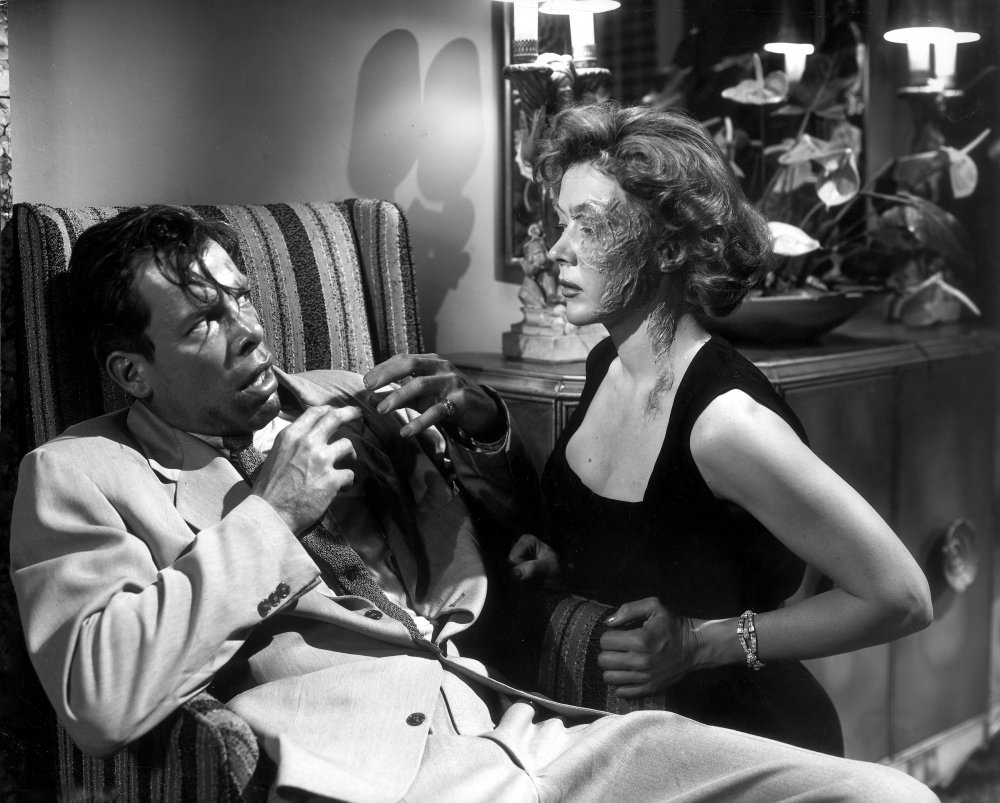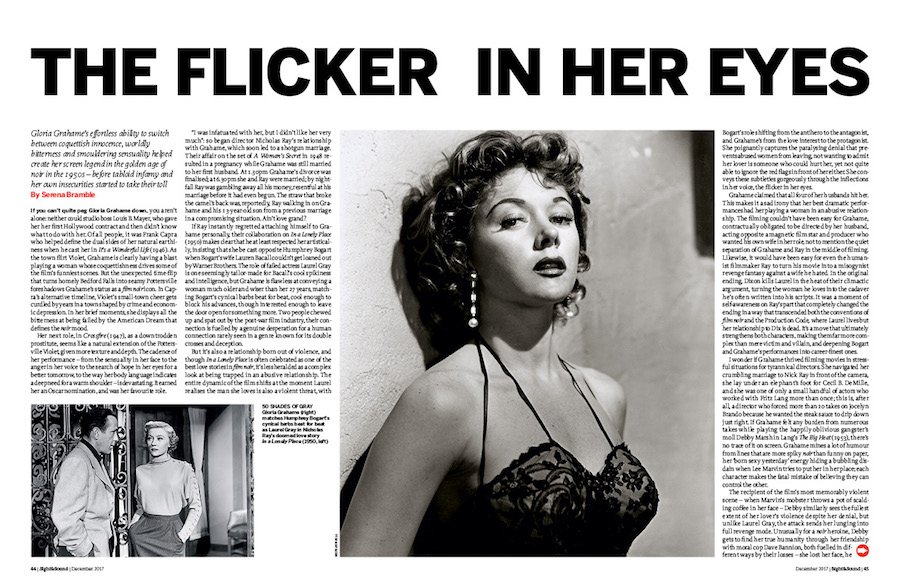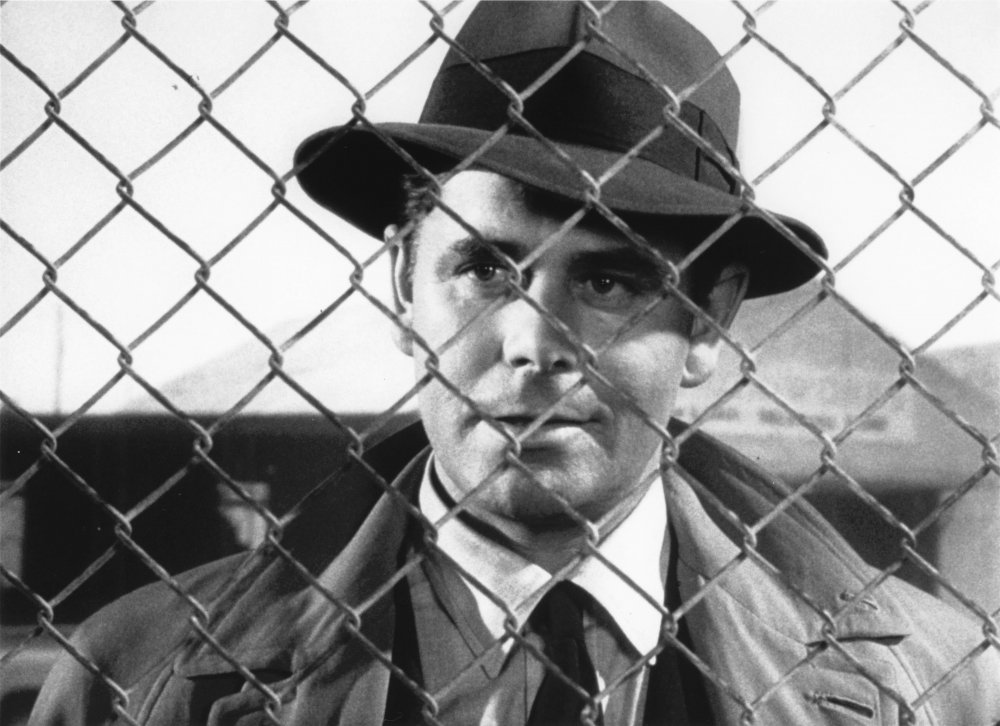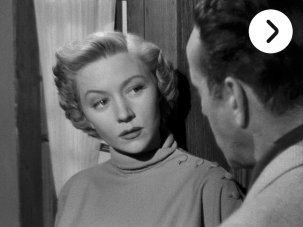It seems a long time since Fritz Lang gave us a good film: in fact, the sense of strain and stylistic pretentiousness in his recent work – when it has not been mere commercial hokum – had almost made one abandon hope. This makes it the more unfortunate that his latest film should have passed almost unnoticed. For it is an extremely good thriller, distinguished by precisely those virtues which Lang’s pictures have in the past few years so painfully lacked: tautness and speed; modesty of intention; intelligent, craftsman-like writing. Above all, it is directed with a dramatic incisiveness, a sharp-edged observation that keeps the pitch of interest and excitement continuously high.
USA 1953
Certificate 15 85m 50s
Director Fritz Lang
Cast
Sgt Dave Bannion Glenn Ford
Debby Marsh Gloria Grahame
Katherine ‘Katie’ Bannion Jocelyn Brando
Mike Lagana Alexander Scourby
Vince Stone Lee Marvin
Bertha Duncan Jeanette Nolan
Original UK release date 1 February 1954
UK re-release date 24 November 2017
Part of the season Good at Being Bad: the films of Gloria Grahame, running 13 November–30 December at BFI Southbank, London.
Distributor Park Circus
parkcircus.com/films/5518-the-big-heat
► Trailer
Adapted from a novel by William McGivern, The Big Heat is scripted by Sydney Boehm. He has not done so well since Union Station – a film which this rather recalls in its ingenious construction and clever, likely motivation. The handling here, however, is more frankly melodramatic, and the world evoked nearer to that of Raymond Chandler.
The situation is classic: the unassuming crusader versus the high-class racketeer; the crusader operating alone; the racketeer manoeuvring his thugs (inside and outside the city police) from his guarded mansion in the snob section of town. Unlike Marlowe, Dave Bannion is a professional cop; but his disrespect of persons soon gets him suspended, and his conduct shows the same doggedness, the same human fallibility, the same hunger after righteousness as the Chandler hero’s. He challenges the racketeer, and pays for it: his wife is murdered; bitterly he dedicates himself to vengeance. Glenn Ford plays this part with a deceptively casual charm that covers without concealing a real inward intensity. (This admirable actor is one of the few surviving in Hollywood who are able convincingly to convey any moral awareness or conflict.) As the gay, incautious girl friend of a vicious hoodlum, Gloria Grahame acts with brilliant wit and considerable subtlety; and all the way down the cast – of generally unfamiliar faces – the characterisations have a welcome individuality of line.

Lee Marvin as Vince Stone and Gloria Grahame as Debby Marsh
The Big Heat is one of those enjoyable films which make no great claims for themselves, yet which so balance style and intention (like the early Hitchcock’s, for instance) that they are finally more satisfying than many more ambitious works. The film lacks the density of a Maltese Falcon; one or two of its elements are over-conventional; Lang’s viewpoint remains exterior. All the same, it creates its world, and proves that, when his interest is engaged, this director still has at his control the technique of a master.
Contributory skills that also deserve praise are Charles Lang’s, whose lighting powerfully contributes to the atmosphere of tension and incipient violence, and Charles Nelson’s, whose editing is immaculate. The timing of the end-title, in its relation to soundtrack as well as image, is a little triumph in itself.
☞
In the December 2017 issue of Sight & Sound

The flicker in her eyes
Gloria Grahame’s effortless ability to switch between coquettish innocence, worldly bitterness and smouldering sensuality helped create her screen legend in the golden age of noir in the 1950s – before tabloid infamy and her own insecurities started to take their toll. By Serena Bramble.
-
The Digital Edition and Archive quick link
Log in here to your digital edition and archive subscription, take a look at the packages on offer and buy a subscription.






